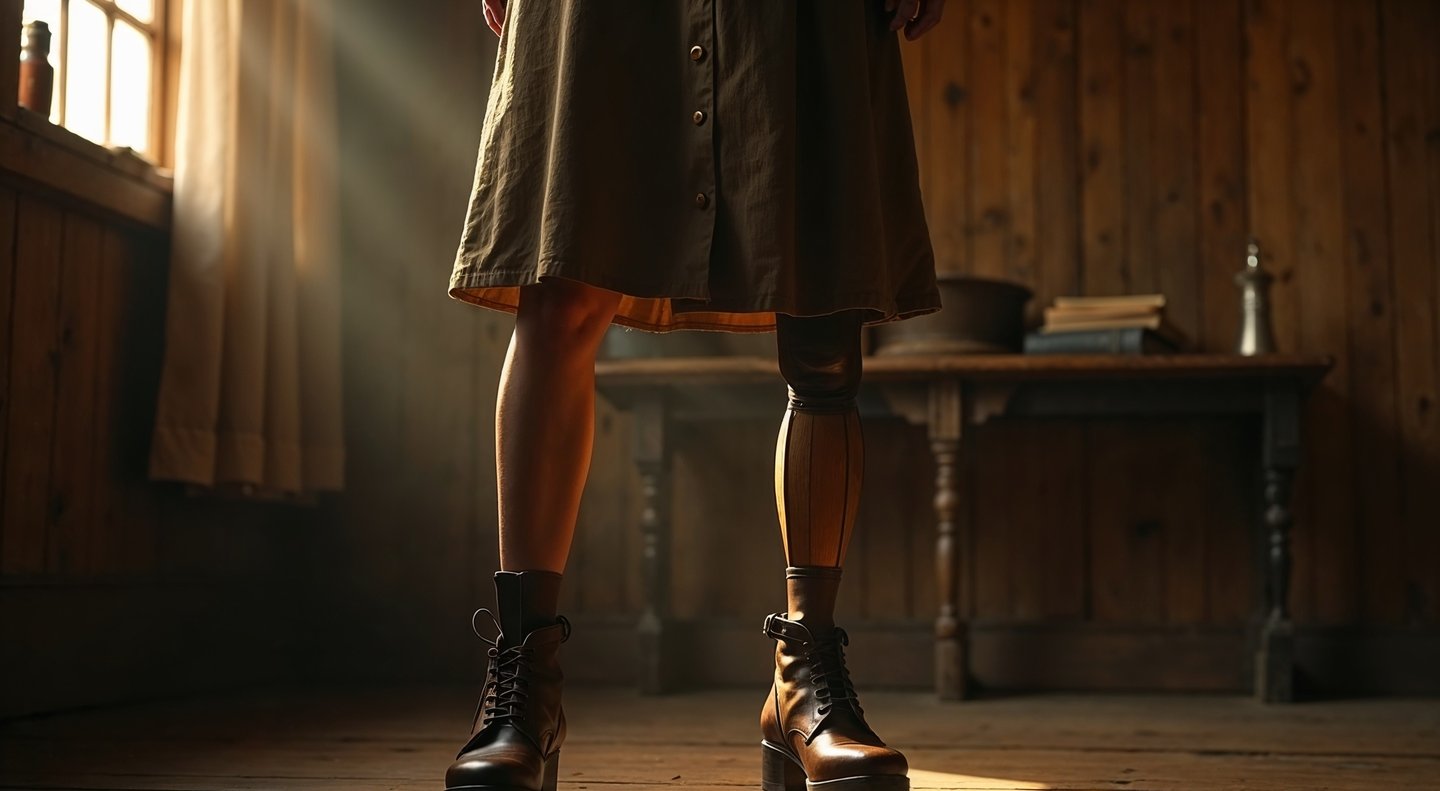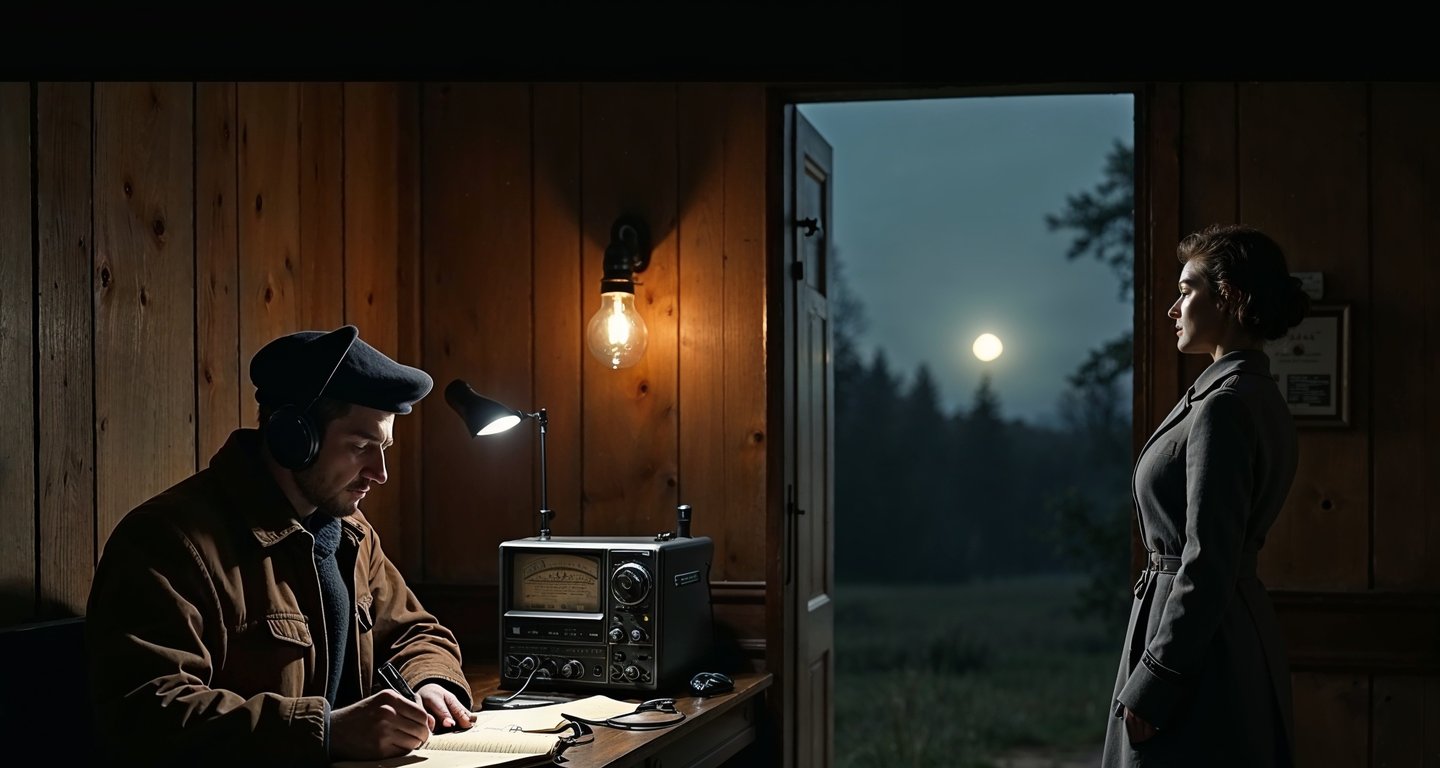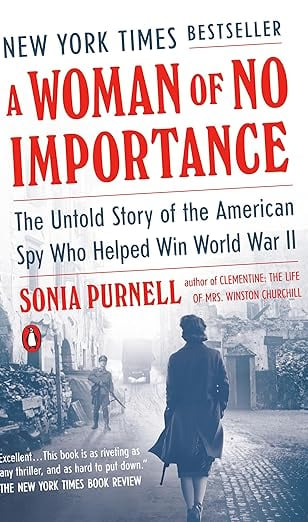Virginia Hall: The Most Dangerous Allied Spy of WWII
This is the incredible story of Virginia Hall, who became one of the most legendary spies of World War II. This blog delves into her daring escape from Nazi-occupied France, her return to the Resistance, and the pivotal intelligence work that helped shape the success of the D-Day landings. Learn how Hall's courage, resourcefulness, and unwavering commitment to the Allied cause made her a crucial figure in wartime espionage and a hero in the fight against Nazi Germany.
HISTORICAL FIGURESHISTORIC EVENTSWARS AND BATTLES
Michael Keller
5/1/202516 min read
"I was always ready to take risks. I never thought I'd get caught." – Virginia Hall [1]
A name whispered in fear by the Gestapo. A figure who moved through war-torn Europe like a ghost, slipping past Nazi patrols and orchestrating destruction from the shadows. A woman who defied expectations, outmaneuvered some of the most ruthless men in history, and became one of the most wanted spies of World War II.
Who was she? How did she infiltrate enemy territory and evade capture time and time again? And why did the Nazis fear her above so many others?
Her story is one of deception, danger, and an unbreakable will. But to understand Virginia Hall, you must first forget everything you thought you knew about spies…
From Baltimore to the Battlefront
Born on April 6, 1906, in Baltimore, Maryland, Virginia Hall entered a world that was rapidly changing. [2] The dawn of the 20th century brought industrial advancements, shifting social norms, and the lingering echoes of World War I, a conflict that had reshaped global politics and left much of Europe in turmoil. For Hall, however, life in her privileged household was one of opportunity and high expectations. Her parents, Barbara and Edwin Lee Hall, were determined to see their daughter succeed, ensuring she received the finest education available to a young woman of her status.
Hall quickly distinguished herself academically, displaying an insatiable curiosity and a sharp mind that would serve her well in the years to come. She attended Radcliffe College, the women’s counterpart to Harvard University, in Cambridge, Massachusetts. [3] There, she immersed herself in political science, history, and languages. Skills that would later become essential in her clandestine work. But her ambitions stretched beyond the classroom. She longed for a career in diplomacy, an ambition that led her to continue her studies at the prestigious École Libre des Sciences Politiques in Paris, one of the most respected institutions for future leaders and policymakers. [4]
The 1920s and 1930s were a tumultuous era, particularly for Europe. The Treaty of Versailles had ended World War I, but its consequences were still unfolding. Economic instability, the rise of fascism, and political unrest gripped the continent. Paris, where Hall studied, was a city of contradictions, bustling with intellectualism and artistic expression while overshadowed by the growing threat of authoritarian regimes. It was an era of shifting alliances and covert maneuvering, where diplomacy was as much about survival as it was about statecraft.
Virginia Hall was determined to be part of this world. She envisioned herself as an envoy, bridging international divides and shaping the course of history from behind a polished desk in an embassy. But fate had other plans. A single moment, one misstep on a hunting trip, would shatter those ambitions. Setting her on an entirely different path. One that would lead her not into the safety of diplomatic halls, but into the dangerous heart of wartime espionage.




An Accident That Changed Everything
In 1932, Virginia Hall’s life took a devastating turn during a hunting trip in Turkey. While climbing over a wire fence with a shotgun in hand, she lost her footing. The weapon discharged, and the bullet struck her left foot. The damage was catastrophic. Isolated and with few medical options in the rugged countryside, she was rushed to the nearest hospital, but infection quickly set in. With no viable alternative, doctors were forced to amputate her leg below the knee to save her life. [5]
For many, such an injury would have marked the end of an active, ambitious future. But Hall was not one to surrender to despair. Instead, she met the challenge with an almost defiant resilience. She was soon fitted with a wooden prosthetic leg, an unwieldy and often uncomfortable device, yet one she refused to let slow her down. [6] Ever one to maintain a sharp sense of humor, she named her new limb Cuthbert, though the exact origin of the name remains uncertain.[7] Some speculate it was inspired by a saint or an inside joke she shared with friends. What is clear, however, is that she spoke of Cuthbert as if he were a troublesome but loyal companion, even referring to him in coded messages later in her espionage career.
Hall’s ability to overcome adversity likely stemmed from a deep well of personal determination and an unwillingness to be sidelined by circumstance. Raised in a family that valued independence, she had always been headstrong. But the loss of her leg forced her to tap into an even greater reserve of inner strength. When her lifelong dream of becoming a U.S. diplomat was shattered (due in part to outdated State Department regulations that barred disabled individuals from serving in such roles) she refused to retreat into a quiet life. Instead, she sought out new ways to make an impact.
What could have been a lifelong limitation became something else entirely. Something unexpected! Though the world often overlooked those it deemed weak or broken, she saw things differently. She knew that sometimes, being underestimated was the greatest advantage of all.
Virginia Hall was not a woman content with being overlooked. A new path was waiting, one she could have never predicted. Soon, the world would come to know her name for reasons far beyond her injury.
Back in the Fight
By 1944, the winds of war had begun to shift in favor of the Allies. The Germans, once poised to dominate Europe, were now facing mounting pressure on multiple fronts. The Soviet forces were pushing in from the East, and the Allies had landed in Italy. Most significantly, the D-Day invasion was on the horizon, and it promised to be a pivotal moment in the war. But for all the strategic planning underway, the Resistance remained crucial in gathering intelligence, sabotaging German operations, and preparing the ground for the Allied advance.
Virginia’s absence from the field had given her a deeper sense of urgency. She was not only motivated by her desire to stop the Nazi machine but also by a personal determination to see the war through to its conclusion. The stakes were higher than ever, and Hall was ready to make her mark once again. However, her return to France would not be under the banner of the SOE. Despite her incredible successes, the British intelligence agency was hesitant to send her back into the field. [18] Some within the SOE believed her cover had been too thoroughly blown, that the Gestapo knew her well enough to make her mission a death sentence. Others doubted whether a woman (especially one with a disability) could continue to operate effectively in such dangerous conditions. [19]
But Hall had no intention of being sidelined. She turned instead to the American Office of Strategic Services (OSS), which, after much deliberation and with only grudging approval from her former handlers in the SOE, accepted her into their ranks. The OSS, recognizing her unique talents and firsthand experience, eagerly sent her back into Nazi-occupied France. [20]
This time, her reentry into enemy territory was cloaked in even more careful secrecy. Disguised as a milkmaid, her face weathered with makeup, her hair dyed gray, she slipped across the border into the very territory she had once dominated. The milkmaid disguise was brilliant in its simplicity. A woman of her supposed status, unremarkable in appearance, would pass through German checkpoints without drawing the attention that a soldier, spy, or higher-ranking operative would. Under the guise of mundane daily tasks, Hall was able to weave herself back into the Resistance's network, reconnecting with old allies and establishing new contacts to continue her sabotage operations.
Her return was swift and purposeful. Hall wasted no time resuming her critical work. [21] She quickly took charge of several sabotage missions aimed at crippling the German military machine in France. One of her first acts was to again help organize the derailing of German supply trains. This was not only highly effective but also forced the Germans to divert crucial resources to repairs, weakening their ability to respond to Allied movements. [22] At the same time, Hall coordinated the destruction of munitions factories and supply depots that were vital to the German war effort, inflicting significant damage to the enemy's infrastructure.
But it wasn’t just the sabotage that was making waves, it was her intelligence work that became the lifeblood of the Allied invasion strategy. [23] Hall’s network of Resistance operatives was instrumental in gathering detailed information about German troop movements, fortifications, and supply routes. Her dispatches were accurate and timely, ensuring that the Allies could make well-informed decisions as they prepared for the impending invasion of Normandy.
Hall’s reports on German defenses along the French coast were crucial to the success of the D-Day landings. [24] While the Allied generals were already planning for an assault, the data Hall provided about enemy positions, minefields, and even the availability of German reserves helped the Allies select the most strategic landing zones. Her intelligence directly impacted the decision-making process, ensuring that the landings, which would become a turning point in the war, had the best possible chance of success.
Resistance leader Georges Guingouin, a man who worked closely with Hall during this period, once remarked, “She was the most formidable woman I ever met.” [25] His words were a testament to Hall’s reputation among her peers. She was no longer just an operative; she was a legend in the Resistance. Her courage was matched only by her strategic brilliance, and she inspired those around her to follow her example, often risking their own lives for the greater cause.
Hall’s return to the field marked some of her most daring and effective operations. As she continued to disrupt German supply lines, damage critical infrastructure, and provide invaluable intelligence, she solidified her position as one of the most extraordinary figures in the history of wartime espionage. The Allies, who had already been aware of her exploits, came to rely on her even more as the war drew to a close. Virginia Hall was not only a survivor but also one of the driving forces behind the eventual defeat of Nazi Germany.
Her unwavering commitment to the cause, despite the personal sacrifices she made, left a mark on the annals of wartime espionage. [26] Hall's courage in the face of seemingly insurmountable odds, combined with her sharp mind and strategic prowess, ensured her place in the pantheon of the most important figures of World War II.
A Woman of no Importance by Sonia Purnell is a gripping biography of Virginia Hall, the American spy whose courage and brilliance turned the tide of World War II. A New York Times bestseller and winner of the Plutarch Award, Purnell’s meticulous research reads like a fast-paced thriller, chronicling
Hall’s daring feats behind enemy lines. From her early life to becoming one of the most formidable spies in history, Hall’s story is a testament to the power of one brave individual to make a difference. Chosen as one of the best books of the year by NPR, the New York Public Library, and others, this biography is both compelling and inspiring. A must-read for history and espionage enthusiasts alike.
A Spy is Born
In 1939, the world was thrust into the devastation of World War II. As Nazi forces began to sweep across Europe, France found itself on the brink of collapse. Virginia Hall, an American expatriate living in France at the time, watched as her adopted homeland was pulled into the chaos. In 1940, with the war intensifying and the world in turmoil, Hall sought a way to contribute to the Allied war effort. She found her opportunity through the American Ambulance Field Service, where she volunteered to drive ambulances through the war-torn French landscape. [8]
The ambulance missions Hall undertook were harrowing, driving through war-torn French landscapes, dodging bombed-out streets, and navigating the ever-present threat of German patrols. Every day was a reminder of the harsh realities of Nazi occupation. Yet, amid the chaos and destruction, Hall's resolve only grew stronger. It was clear to her that this front-line service, while vital, was not enough. She needed to do more.
Her chance came when she was recruited by Britain’s Special Operations Executive (SOE). A secretive force tasked with sabotage, espionage, and aiding resistance movements. [9] After months of rigorous training, Hall was prepared for the dangerous work ahead. By August 1941, after months of training, she joined the ranks of the SOE. Code Name: “Diane.” [10]
Virginia Hall's Early Missions
When Virginia Hall first arrived in Nazi-occupied France, her mission was clear: gather intelligence, organize sabotage efforts, and aid the French Resistance, all while keeping her true identity hidden from the enemy. At the outset of her espionage career, she was able to blend in with relative ease. Afterall, no one expects a cripple to be a threat. In the early months of her operations, Hall worked with local Resistance groups to establish covert networks. Her presence was masked by various disguises and false identities, and she relied on her sharp mind and charisma to recruit locals willing to fight against the Nazis.
Her most crucial task however, was to relay intelligence about German troop movements and supply lines. Hall meticulously documented these details, passing them to her superiors in Britain via clandestine radio transmissions. Her information proved invaluable to the Allied war effort, providing critical updates on Nazi positions and fortifications. [11]
One of her earliest successes came when she orchestrated the sabotage of a key German transportation route. [12] In the dead of night, Hall directed Resistance fighters to destroy several critical railway tracks, disrupting German supply lines. The mission was carried out with precision, and the damage done to the tracks delayed Nazi reinforcements, buying precious time for the Allies to strategize their next move.
Along with sabotage, Hall was also tasked with aiding downed Allied airmen. As the Gestapo increased its patrols and executed swift reprisals for every airman they captured, Hall's networks played a vital role in guiding these men to safety. Using a series of safe houses and secret routes through the French countryside, she ensured that Allied soldiers made their way to neutral Spain or Britain. [13] It was an incredibly risky endeavor, requiring her to move discreetly across France, sometimes spending days or weeks in hiding, coordinating safe escapes for dozens of men.
Throughout these missions, Hall kept a low profile, using her intelligence and resourcefulness to stay one step ahead of the Nazis. Her ability to slip in and out of areas undetected became her signature, and her connections with the French Resistance deepened. At one point, she even managed to infiltrate a German military outpost, gathering intelligence on troop strength and fortifications, all while posing as a local civilian. [14] These early successes made her an indispensable asset to the Allies, but they also attracted the attention of the Gestapo, who began to hear whispers of a mysterious woman who seemed to have an uncanny ability to outsmart the Nazi forces.
Despite her growing notoriety, Hall remained undetected for months, relying on her wits, her disguise skills, and the support of her Resistance comrades. The true nature of her work was only beginning to be realized by the Nazis, but they could never quite grasp just how effective, and elusive, this woman truly was.
A Journey of Survival
By 1942, Virginia Hall had firmly established herself as one of the most effective and resourceful operatives in the Resistance. Her intelligence work, sabotage operations, and ability to rally local networks had earned her the respect of the Allies and the wrath of the Nazis. The Gestapo, relentless in their pursuit of her, had finally identified the “Limping Lady” and were closing in. [15] Hall's work had made her an invaluable asset to the Resistance, but it also made her a prime target for the German occupiers.
With the Gestapo's grip tightening and her cover blown, Hall knew she had no choice but to flee. The path to safety was a treacherous one. France was under the tight control of Nazi forces, and the only route to neutral territory lay through the Pyrenees mountains, a formidable barrier that stretched between France and Spain. The mountains were notorious for their harsh conditions, treacherous slopes, unpredictable weather, and the constant threat of enemy patrols. Hall would have to cross these unforgiving peaks on foot, with no guarantee of survival.
The journey to Spain was grueling for anyone, but for Hall, it was made even more excruciating by the fact that she was forced to navigate the mountains with a prosthetic leg. The prosthesis, while an incredible achievement at the time, was far from ideal for such an extreme journey. Over the course of her two-day, 50-mile journey, the winter conditions were treacherous, with snow, ice, and biting cold making every step more difficult. Each step was a painful reminder of the sacrifices she had made, but Hall was driven by sheer determination. The knowledge that her work for the Resistance had saved countless lives and the urgency of escaping the Gestapo propelled her forward. [16]
Hall’s physical condition never dampened her spirit. Even in the most dire of circumstances, she kept her wits about her. She had been trained in the art of survival and resistance, and her adaptability and resilience shone through. In a message to her superiors during the escape, Hall humorously wrote, “Cuthbert is giving me trouble, but I can cope.” [17] Despite the punishing terrain, the lack of resources, and the constant threat of discovery, Hall pressed on, undeterred by the overwhelming challenges before her.
By the time Hall reached Spain, she had endured one of the most difficult journeys of her life, a testament to her endurance and indomitable will. However, as soon as Hall was spotted at a train station, she was arrested for illegal border crossing. Despite her grueling escape through the Pyrenees, her journey had not yet come to an end. She was detained for nearly a month, adding yet another challenge to her already harrowing tale. Hall was able to sneak a message out to the Allies when a cellmate was released shortly after her arrest.
Once the situation was resolved, Hall sought refuge in neutral Spain. However, she quickly began making arrangements to return to the field. The war was still raging, and Hall was not one to rest on her laurels. Her time away from the action would be brief. Soon, she would be back on the front lines of espionage, continuing her fight against the Nazis.
As we reflect on Hall's remarkable journey, we might ask ourselves: In moments of adversity, what drives us to take risks and make sacrifices for something greater than ourselves? And perhaps more importantly, what would we be willing to do if we knew our actions would remain in the shadows, known only to those who truly understand their importance?
Share your thoughts with us. For feedback or inquiries, email: contact@archivinghistory.com. We look forward to hearing from you!
Join Archiving History as we journey through time! Want to stay-tuned for our next thrilling post? Subscribe!
Follow us on Facebook, Instagram, YouTube and TikTok for captivating insights, engaging content, and a deeper dive into the fascinating world of history.
Source(s):
1. Wise, David. The Spy Who Came in from the Cold: Virginia Hall, the OSS, and the CIA. New York: The Free Press, 2009.
2. Dobson, Alan. The Woman Who Cracked the Nazis: Virginia Hall, World War II's Greatest Female Spy. London: Macmillan, 2017, 1.
3. Dobson, Alan. The Woman Who Cracked the Nazis, 12.
4. Dobson, Alan. The Woman Who Cracked the Nazis, 14.
5. Williams, D.L. The Spy Who Loved Her Country: The Life of Virginia Hall. London: Constable, 1964, 45.
6. Dobson, Alan. The Woman Who Cracked the Nazis, 43.
7. Dobson, Alan. The Woman Who Cracked the Nazis, 46.
8. Williams, D.L. The Spy Who Loved Her Country, 78.
9. Wise, David. The Spy Who Came in from the Cold, 45.
10. Williams, D.L. The Spy Who Loved Her Country, 110.
11. Loftis, Larry. Code Name: Lise: The True Story of the Woman Who Became WWII's Most Highly Decorated Spy, 2019.
12. Purnell, Sonia. A Woman of No Importance: The Untold Story of Virginia Hall, WWII's Most Dangerous Spy. New York: Doubleday, 2019.
13. Purnell, Sonia. A Woman of No Importance, 1.
14. Purnell, Sonia. A Woman of No Importance, 23.
15. Purnell, Sonia. A Woman of No Importance, 45.
16. Moser, Michael. The Limping Lady: The True Story of Virginia Hall, America's Most Dangerous Female Spy. New York: HarperCollins, 2016.
17. Purnell, Sonia. A Woman of No Importance, 67.
18. Purnell, Sonia. A Woman of No Importance, 89.
19. Purnell, Sonia. A Woman of No Importance, 112.
20. Purnell, Sonia. A Woman of No Importance, 134.
21. Purnell, Sonia. A Woman of No Importance, 156.
22. Purnell, Sonia. A Woman of No Importance, 178.
23. Purnell, Sonia. A Woman of No Importance, 200.
24. Purnell, Sonia. A Woman of No Importance, 222.
25. Purnell, Sonia. A Woman of No Importance, 244.
26. Purnell, Sonia. A Woman of No Importance, 266.
27. Purnell, Sonia. A Woman of No Importance, 289.
28. Purnell, Sonia. A Woman of No Importance, 311.
29. Purnell, Sonia. A Woman of No Importance, 333.


Lightweight, Classic fit, Double-needle sleeve and bottom hem
A Woman of no Importance by Sonia Purnell is a gripping biography of Virginia Hall, the American spy whose courage and brilliance turned the tide of World War II. A New York Times bestseller and winner of the Plutarch Award, Purnell’s meticulous research reads like a fast-paced thriller, chronicling
Hall’s daring feats behind enemy lines. From her early life to becoming one of the most formidable spies in history, Hall’s story is a testament to the power of one brave individual to make a difference. Chosen as one of the best books of the year by NPR, the New York Public Library, and others, this biography is both compelling and inspiring. A must-read for history and espionage enthusiasts alike.




Beyond the Shadows
For her unparalleled bravery and extraordinary contributions during World War II, Virginia Hall was awarded the Distinguished Service Cross, the only civilian woman in the war to receive such an honor. [27] Her work as a spy was unparalleled, and her name became synonymous with courage, secrecy, and intelligence. After the war, she continued her service with the newly formed CIA, where she used her hard-earned skills to carry out intelligence operations during the Cold War, serving as a key asset in the agency’s efforts for many years.
However, despite her vast experience and remarkable wartime record, Hall found herself sidelined in a desk job, her talents largely ignored. The CIA, like much of the intelligence world at the time, was dominated by men who were wary of a woman with her level of expertise. Many of her colleagues later admitted that she had been "shunted into backwater accounts" because her skills and experience overshadowed her male counterparts, who felt threatened by her presence. [28] The agency itself later acknowledged that she had been discriminated against due to her gender, and that her abilities were never properly utilized. It was a bitter irony for a woman who had outwitted the Gestapo and led daring sabotage missions, only to be dismissed by the very organization that should have valued her the most.
Despite her incredible achievements and the profound impact she had on the course of the war, Hall never sought fame or recognition. She worked in the shadows, knowing that her sacrifices were integral to the success of the larger mission. “Until the Gestapo came, I never knew I had a capacity for hatred,” [29] she once confessed, reflecting on the depths of her transformation in the face of such a ruthless enemy. A master of deception, survival, and resilience, Hall risked everything for the greater good, never expecting accolades for her actions.
Hall’s story is a reminder that true heroism often goes unnoticed by the masses. She wasn’t driven by fame but by an unshakable sense of duty and an innate belief that her work mattered. Though her contributions were hidden in the shadows of wartime secrecy, they were invaluable to the freedom of countless lives. Her influence endures not in public recognition, but in the countless lives she touched through her courage and commitment.







